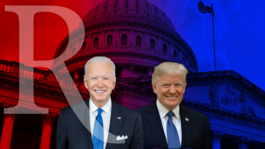Ending a Policy That's Failed for 50 Years
A Commentary by Joe Conason
Listen carefully to the Republican leaders and presidential hopefuls roaring with outrage over President Barack Obama's courageous decision to normalize relations with Cuba; listen very carefully, because no matter how long or how closely you listen to them, there is one thing you will surely never hear.
You will never hear a new idea -- or any idea -- about bringing liberty, democracy and prosperity to the suffering Cuban people.
Instead, the furious denunciations of the president's initiative from his adversaries reveal only an intellectual void on Capitol Hill, where the imperatives remain partisan and cynical. Everyone paying attention has known for decades that the frozen relationship between the United States and Cuba has accomplished nothing -- except possibly the prolongation of the Castro regime, which has long considered the embargo a plausible excuse for its own economic failures and viewed the United States as a politically convenient enemy.
Anyone who has visited the island knows that the Cubans wish nothing more than to see the embargo lifted because they know it has done nothing to advance their liberty or prosperity -- just the opposite.
As Bill Clinton likes to say, the definition of insanity is to keep doing the same thing and expect a different result. (He wanted to normalize relations as president, but the Cuban government clearly didn't.) The U.S. government has been doing the same thing in Cuba for nearly 54 years, yet the Republicans still don't think that's been long enough. They haven't explained how or why -- or when -- their policy will achieve a different result.
Opponents of change have also failed to justify why we've treated Cuba so differently than we treat other -- and, in various respects, worse -- authoritarian regimes with which we maintain not only vigorous diplomatic relations but massive trading partnerships and even military cooperation. The conduct of those governments is arguably more repressive in important ways; there is, for instance, less religious freedom in China and Saudi Arabia than Pope Francis found in Cuba.
To browse human rights findings from the State Department's annual reports or the online files maintained by groups such as Human Rights Watch and Amnesty International is to find at least a dozen countries with atrocious human rights records, from Chad to Turkmenistan. But the United States maintains diplomatic and trade relations with all of them.
Indeed, Republican leaders and businessmen -- notably including members of the Bush family -- have profited handsomely from investment in countries such as China and Saudi Arabia for many years, with scarcely a peep about human rights violations in those places. It is impossible to forget how the first President Bush toasted the Chinese regime immediately after the massacre in Tiananmen Square -- and how his opportunistic family members showed up in Beijing and Shanghai looking for a deal.
With the liberation of more than 50 political prisoners -- along with American aid worker Alan Gross and an unnamed American spy -- the Cubans have suddenly improved their human rights performance, while the Chinese continue to inflict horrendous repression and even torture on Tibetans, Uighurs and Han Chinese who dare to dissent. (Many of our leading Republicans don't object to torture, of course, unless it is perpetrated in foreign countries. Sometimes.)
House Speaker John Boehner accused the president of making "another mindless concession to a dictatorship." What seems truly mindless, however, is his insistence that we dare not abandon an unworkable and destructive strategy. No trade and diplomatic boycott observed and enforced by one country alone -- even a powerful country such as ours -- is ever going to prevail.
That is among the reasons international human rights organizations, always the most consistent and implacable critics of the Castros' abuses, have long advocated engagement rather than embargo. As Human Rights Watch notes on Web pages devoted to detailing those abuses, U.S. policy has imposed "indiscriminate hardship on the Cuban people" since 1961 "and has done nothing to improve the country's human rights."
And not long after the president concluded his historic speech -- among the most lucid, logical and inspiring delivered since he was re-elected -- a spokeswoman for Amnesty International called his new approach "the best opportunity in (a) half-century for human rights change in Cuba."
Designed to quarantine the Cuban government, the policy that has failed for five decades has only succeeded in isolating the United States from the rest of the world. Its end is long overdue.
To find out more about Joe Conason and read features by other Creators Syndicate writers and cartoonists, visit the Creators Syndicate website at www.creators.com.
COPYRIGHT 2014 CREATORS.COM
See Other Political Commentary.
See Other Commentary by Joe Conason.
Views expressed in this column are those of the author, not those of Rasmussen Reports.
Rasmussen Reports is a media company specializing in the collection, publication and distribution of public opinion information.
We conduct public opinion polls on a variety of topics to inform our audience on events in the news and other topics of interest. To ensure editorial control and independence, we pay for the polls ourselves and generate revenue through the sale of subscriptions, sponsorships, and advertising. Nightly polling on politics, business and lifestyle topics provides the content to update the Rasmussen Reports web site many times each day. If it's in the news, it's in our polls. Additionally, the data drives a daily update newsletter and various media outlets across the country.
Some information, including the Rasmussen Reports daily Presidential Tracking Poll and commentaries are available for free to the general public. Subscriptions are available for $4.95 a month or 34.95 a year that provide subscribers with exclusive access to more than 20 stories per week on upcoming elections, consumer confidence, and issues that affect us all. For those who are really into the numbers, Platinum Members can review demographic crosstabs and a full history of our data.
To learn more about our methodology, click here.



